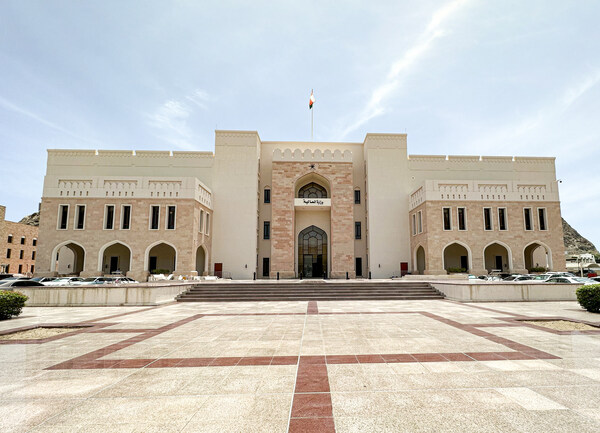MUSCAT, Oman, Oct. 2, 2024 /PRNewswire/ -- Standard & Poor's (S&P) has upgraded Oman's credit rating to 'BBB-' from 'BB+' with a stable outlook, driven by improvements in the country's financial performance. This marks Oman's return to investment-grade status after nearly seven years, during which its rating dropped due to the decline in global oil prices and COVID-19.
S&P highlighted that the improvement is a result of continued efforts to enhance public finances through financial and economic reform initiatives and government restructuring. These measures restored the balance between revenues and public spending as outlined in the medium-term financial plan, leading to financial surpluses. Additionally, the government's focus on reducing public debt, improving governance of state-owned enterprises, and lowering debt levels contributed to the positive outlook.
Higher oil prices and the financial measures taken have strengthened Oman's fiscal position, providing flexibility to manage external shocks. S&P expects Oman's budget to generate financial surpluses of 1.9% during 2024-2027, assuming Brent crude prices average $80 per barrel from 2025 to 2027. This would allow the government to continue reducing public debt and building financial reserves. Oman's real GDP is projected to grow by 2% annually, with increased oil production stimulating non-oil sector growth by about 2% per year. The current account is expected to maintain surpluses, averaging 1.2% of GDP during 2024-2027.
S&P emphasized Oman's commitment to reducing public debt, predicting it will reach 29% of GDP by 2027, indicating that liquid assets would remain around 36% of GDP until that year.
Inflation is expected to stay moderate, averaging 1.4% annually during 2024-2027, following a low of 0.9% in 2023. Credit to the private sector expanded by 4.9% in 2023, and lending is projected to grow by 5%-6% annually, supported by favorable credit conditions.
S&P noted that government efforts to manage state-owned enterprises since 2020 have improved governance, operational efficiency, and financial performance, with increased profitability and reduced debt levels. Establishing Oman Energy Development Company (EDO) and Integrated Gas Company (IGC) has also enhanced government financial accounts by reflecting net revenues after oil and gas sector expenses.
Oman's credit rating could improve further over the next two years if the government continues managing public finances as planned, increasing non-oil revenues and improving public expenditure efficiency. These measures would support GDP growth, driven by ongoing momentum in non-oil sectors and continued efforts to promote economic diversification and capital market development.
His Excellency Sultan bin Salim Al Habsi, Oman's Minister of Finance, stated that the upgraded rating reflects the government's commitment to fiscal balance and financial sustainability. This rating enhances confidence in Oman's economy and investment appeal, following positive results from financial reforms, including the Public Debt Law, which strengthened governance and improved the investment environment.
The Minister added that the government remains committed to strengthening public finance indicators and utilizing financial surpluses to promote economic and social prosperity. These achievements result from collaboration between government units, private sector partners, and civil society institutions.
For inquiries:
Muhja Khalfan Al Daairi
Muhja.daairi@mof.gov.om
+968 99805058
source: Oman's Ministry of Finance
【你點睇】陳美寶、羅淑佩分別被任命為運物局及文體旅局局長,你是否認同新任命有助香港鞏固物流樞紐地位及促進旅遊經濟?► 立即投票
































